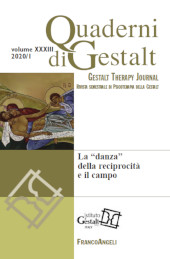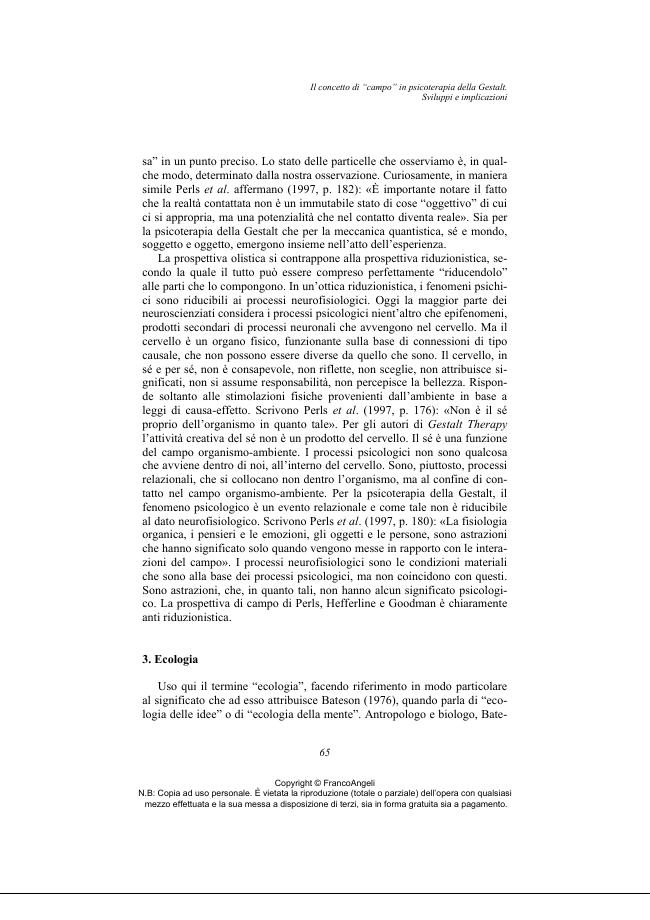Il concetto di "campo" in psicoterapia della Gestalt : sviluppi e implicazioni
57-73 p.
Dopo avere descritto le differenti letture del concetto di campo organismo/ambiente e la sua evoluzione nell'ambito della letteratura gestaltica, l'autore ne analizza alcuni aspetti e implicazioni, a partire da tre categorie paradigmatiche: olismo, ecologia e meccanica quantistica. L'avvento della teoria della relatività di Einstein e della meccanica quantistica ha messo in crisi il pensiero scientifico tradizionale, fondato sul dualismo cartesiano. Da questo mutamento di paradigma è scaturito un nuovo orientamento culturale di tipo olistico ed ecologico. È all'interno di questa cornice che l'autore inserisce il concetto gestaltico di campo. Lungi dal volere dare una ulteriore definizione di campo, l'articolo colloca questo concetto nella sua ma-trice epistemologica, fornendo uno strumento utile per il suo utilizzo sia teorico che clinico. [Testo dell'editore].
In psychology, "field" is a controversial concept, since it is used with different meanings depending on the different theoretical perspectives. Even in Gestalt literature the concept of field does not yet have a clear and unequivocal definition. The author tries to systematize it, describing the different readings of it and its evolution in the Gestalt literature. He, then, analyses some aspects and implications, starting with three epistemological currents that have marked the development of science: holism, ecology and quantum mechanics. In this way, he highlights the richness and topicality of the Gestalt field concept and contextualizes it from a historical and cultural point of view. The Gestalt theory of the field belongs to a holistic vision of human nature and reality, according to which mind, body and external world are not reali-ties with independent existence, but complementary and inseparable aspects of the contact process.
The author shows how the Gestalt holistic perspective is very similar to the view of quantum mechanics, which considers subject and object as inseparable aspects of a single process. The author then analyses the ecological dimension of Gestalt Therapy, referring in par-ticular to the meaning that Gregory Bateson attributes to the term "ecology". In this way, points of contact and differences between the Gestalt and the ecological vision of Bateson are highlighted. Finally, the author points out that the advent of quantum mechanics has challenged traditional scientific thinking, based on the principles of classical physics. The discoveries of quantum physics show the limits of a purely objective conception of the universe, undermining our own idea of matter. Perhaps, in the future, it will be quantum mechanics that will provide us with a better understanding of field psychological processes. [Publisher's text].
-
Artikel aus derselben Ausgabe (einzeln erhältlich)
-
Informationen
ISSN: 2035-6994
KEYWORDS
- Campo, olismo, ecologia, autoregolazione, meccanica quantistica
- Field, holism, ecology, self-regulation, quantum mechanics



